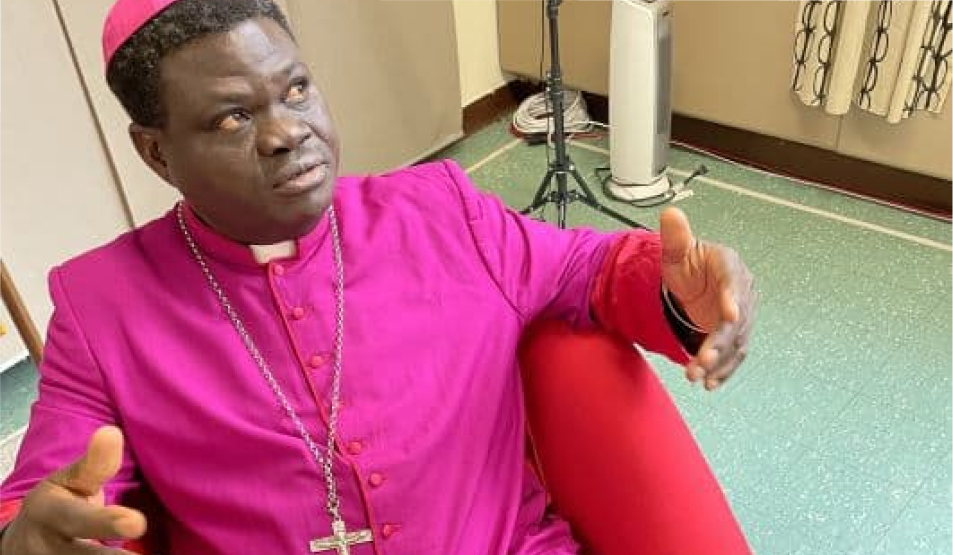A Nigerian bishop has warned American lawmakers that Christian communities in his country face the prospect of eradication unless foreign governments intervene swiftly to halt a worsening tide of violence.
Appearing remotely via Zoom before the U.S. House Foreign Affairs Subcommittee on Africa on 20 November, Bishop Wilfred Anagbe of Makurdi told members that “without quick intervention, Christianity risks elimination in parts of northern and Middle Belt Nigeria within a very short time”.
His appeal came on the same day a gunmen stormed a Catholic boarding school in western Nigeria and abducted children from their hostel, the latest in a series of attacks on churches and schools across the region.
The hearing was convened to examine the scale of religiously motivated violence and to discuss how Washington might pressure Abuja to confront militant groups who have terrorised swathes of the rural north and central belt.
The committee’s chair, Congressman Chris Smith of New Jersey, said “Nigeria is ground zero” for religious persecution, insisting that “these ongoing attacks are based on religion, and diverting attention from it denies what we have seen with our own eyes”.
Bishop Anagbe, speaking with visible strain, said that although Nigeria’s recent designation as a Country of Particular Concern under U.S. law brought “immense joy, hope, and spiritual resilience”, the measure “cannot replace coordinated political, military, and humanitarian intervention”.
He recounted a string of assaults that have devastated communities across Benue State, including the killing of several members of his extended family during a raid on his home village of Aondona on 22 May.
He described churches burnt to the ground, families scattered in flight, and thousands of displaced people living in makeshift camps where they remain vulnerable to further attacks. “Mr Chairman and members, the blood of Nigerian Christians cries out to you. We cannot afford to wait any longer,” he said, adding that “inaction emboldens the extremists even more”. He urged lawmakers to enact “concrete actions”, including targeted sanctions under the Magnitsky Act and expanded humanitarian support for displaced families.
Members of the committee, both Republican and Democrat, acknowledged that the Nigerian government has failed to halt the surge in violence. Smith called for conditions to be placed on U.S. foreign aid, visa bans and asset freezes on perpetrators of abuses, and increased support for faith-based organisations assisting the displaced.
The hearing also reviewed long-standing activity by Boko Haram and armed Fulani groups, with officials stressing that the pattern of attacks — often directed at Sunday services, clergy homes, and Christian villages — cannot be explained away as random criminality.
The situation has added strain to Nigeria’s international relations, with other countries urging Abuja to abandon what they say is an increasingly indefensible refusal to recognise the religious character of the killings. Under the International Religious Freedom Act, countries designated as violators face economic and diplomatic consequences if they fail to improve protections for vulnerable groups.
Bishop Anagbe delivered a similar warning in the UK Parliament earlier this year at an event hosted by Aid to the Church in Need. He told MPs and peers that Benue State had become a battleground where Islamist extremists and militant herdsmen “bear on defenceless villagers without consequence”, adding that “they follow orders to conquer, kill, and occupy”.
He asked Britain to condition its relations with Nigeria on securing the return of displaced families to their ancestral homes and ensuring justice for victims of religious persecution.
Bishop Wilfred Anagbe was born in 1966 in Benue State and ordained in 1993. Appointed Bishop of Makurdi in 2015, he oversees one of the largest and most violence-affected dioceses in Nigeria’s Middle Belt. He has become an international advocate for persecuted Christians and a leading witness to the suffering of his people.

















